 Being physically active does more than just get you in shape. It can also relieve stress, reduce depression, help you sleep better, boost your energy, all for free! Take some time each day and move around to get your heart beating faster. You can walk, clean, dance – anything! – as long as you do it for at least 10 minutes at a time. It’s best to be active for 150 minutes each week. One easy way to reach this goal is to set aside 10 to 15 minutes a few times each day to be active. You don’t have to do the same things all the time, do all sorts of activities! The important thing is to just keep moving!
Being physically active does more than just get you in shape. It can also relieve stress, reduce depression, help you sleep better, boost your energy, all for free! Take some time each day and move around to get your heart beating faster. You can walk, clean, dance – anything! – as long as you do it for at least 10 minutes at a time. It’s best to be active for 150 minutes each week. One easy way to reach this goal is to set aside 10 to 15 minutes a few times each day to be active. You don’t have to do the same things all the time, do all sorts of activities! The important thing is to just keep moving!
Getting more nutrients for your money
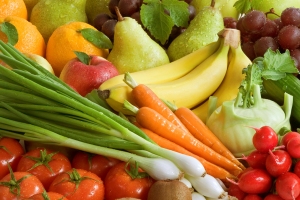 Did you know that scientists have developed a score to tell which foods give you the most nutrients for your money? It’s called the Affordable Nutrition Index . So what foods came out on top? Highest scores went to carrots, sweet potatoes, broccoli, oranges, and bananas. Other foods with high scores were peas, string beans, squash, lettuce, grapes, nectarines, apples, and berries like strawberries. Vegetable soups, especially the low – sodium ones, are also good values. So next time you think you’re paying a lot for fresh produce, just think about what you’re getting! And if these foods keep you healthy, you’re saving even more!
Did you know that scientists have developed a score to tell which foods give you the most nutrients for your money? It’s called the Affordable Nutrition Index . So what foods came out on top? Highest scores went to carrots, sweet potatoes, broccoli, oranges, and bananas. Other foods with high scores were peas, string beans, squash, lettuce, grapes, nectarines, apples, and berries like strawberries. Vegetable soups, especially the low – sodium ones, are also good values. So next time you think you’re paying a lot for fresh produce, just think about what you’re getting! And if these foods keep you healthy, you’re saving even more!
Eating less sodium
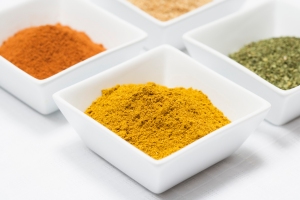 For many people, eating too much sodium can lead to high blood pressure, which can cause stroke and heart disease. Foods that are high in sodium include cheese, deli meats, hot dogs, canned soup, prepared foods, and condiments like ketchup. Check the label on packaged foods and choose ones that are “low sodium” or “no salt added” to reduce your sodium. Try eating more fresh foods, too, like fresh meats, fruits, and vegetables. Cooking food at home is another great way to lower sodium because it allows you to control how much salt is in your food. Instead of salt, try herbs, spices, garlic, vinegar, lemon juice, or no-salt seasoning mixes. Cutting back on salt little-by-little will allow your body to adjust to the natural flavors of foods, so you won’t need to use so much salt. Eat healthy and enjoy your food with less salt!
For many people, eating too much sodium can lead to high blood pressure, which can cause stroke and heart disease. Foods that are high in sodium include cheese, deli meats, hot dogs, canned soup, prepared foods, and condiments like ketchup. Check the label on packaged foods and choose ones that are “low sodium” or “no salt added” to reduce your sodium. Try eating more fresh foods, too, like fresh meats, fruits, and vegetables. Cooking food at home is another great way to lower sodium because it allows you to control how much salt is in your food. Instead of salt, try herbs, spices, garlic, vinegar, lemon juice, or no-salt seasoning mixes. Cutting back on salt little-by-little will allow your body to adjust to the natural flavors of foods, so you won’t need to use so much salt. Eat healthy and enjoy your food with less salt!
Washing fresh fruits and vegetables
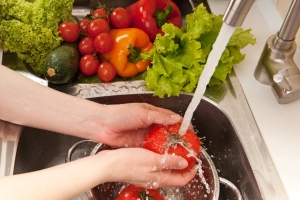 While fresh fruits and vegetables are great for your health, many people don’t wash them before eating and this can cause foodborne illness. Washing helps decrease bacteria and viruses from soil and other sources that cause illness. Always use running water to wash fruits and vegetables just before you plan to use them or eat them. For produce with hard skins such as melons and potatoes, use a vegetable brush to gently rub the skin. Be sure to clean the brush between uses. Use your hands to rub leaves and stalks to remove any hidden dirt. Wash foods even if you plan on peeling them. Bacteria and viruses can easily get inside the food when you peel it. Stay healthy by washing your fruits and vegetables!
While fresh fruits and vegetables are great for your health, many people don’t wash them before eating and this can cause foodborne illness. Washing helps decrease bacteria and viruses from soil and other sources that cause illness. Always use running water to wash fruits and vegetables just before you plan to use them or eat them. For produce with hard skins such as melons and potatoes, use a vegetable brush to gently rub the skin. Be sure to clean the brush between uses. Use your hands to rub leaves and stalks to remove any hidden dirt. Wash foods even if you plan on peeling them. Bacteria and viruses can easily get inside the food when you peel it. Stay healthy by washing your fruits and vegetables!
Eating breakfast
 Eating breakfast is a great way to start your day. It gives you energy to make it through the morning and focus on work or school. People who eat breakfast are also less likely to be overweight. There are lots of breakfast food options. If you need something quick, try toast with peanut butter, yogurt with granola, or low-sugar cereal with low-fat milk. If you have more time, try making scrambled eggs with leftover veggies, pancakes with fruit in the batter, or a fried egg sandwich on an English muffin. Or, if you need something on the go, try a granola bar, a muffin, or a piece of fruit. Eat breakfast to be healthy and give your body the fuel it needs!
Eating breakfast is a great way to start your day. It gives you energy to make it through the morning and focus on work or school. People who eat breakfast are also less likely to be overweight. There are lots of breakfast food options. If you need something quick, try toast with peanut butter, yogurt with granola, or low-sugar cereal with low-fat milk. If you have more time, try making scrambled eggs with leftover veggies, pancakes with fruit in the batter, or a fried egg sandwich on an English muffin. Or, if you need something on the go, try a granola bar, a muffin, or a piece of fruit. Eat breakfast to be healthy and give your body the fuel it needs!
Enjoying pears in season
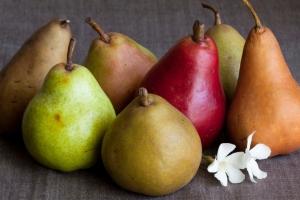 Fall is just around the corner and so is pear season! Pears look a lot like apples and have a unique taste that is sweet and delicious. Asian pears (which are round and yellow or brown) are best eaten when they’re still crispy, but most pears are better when they’re ripe and juicy. Pears ripen best once they are off the tree, so you can buy them at any stage of ripeness. Keep them at room temperature until they feel a little soft and smell sweet. Once they are ripe, store them in the refrigerator. Ripe pears are excellent snacks and are also great in fruit salad or baked for a side or dessert. Try adding a sliced pear to a sandwich. However you prepare them, enjoy the delicious taste of pears this fall!
Fall is just around the corner and so is pear season! Pears look a lot like apples and have a unique taste that is sweet and delicious. Asian pears (which are round and yellow or brown) are best eaten when they’re still crispy, but most pears are better when they’re ripe and juicy. Pears ripen best once they are off the tree, so you can buy them at any stage of ripeness. Keep them at room temperature until they feel a little soft and smell sweet. Once they are ripe, store them in the refrigerator. Ripe pears are excellent snacks and are also great in fruit salad or baked for a side or dessert. Try adding a sliced pear to a sandwich. However you prepare them, enjoy the delicious taste of pears this fall!
Eating whole grains
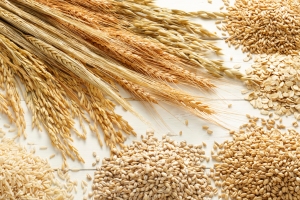 Whole grains contain the entire grain kernel and refined grains contain only the starchy part of the kernel. Whole grains have more fiber, vitamins, and minerals than refined grains. Some refined grains are “enriched,” which means a few of the vitamins and minerals are added back. However, fiber and many other nutrients are not. The nutrients found in whole grains are important for heart health and healthy digestion. Whole grains also help you manage your weight because they help you feel and stay full. You can add a variety of whole grains to your diet by cooking and eating brown rice, whole grain pasta, oats, quinoa, barley, and whole grain breads. Try several different whole grain products because the taste will vary with different brands. Get healthy with whole grains!
Whole grains contain the entire grain kernel and refined grains contain only the starchy part of the kernel. Whole grains have more fiber, vitamins, and minerals than refined grains. Some refined grains are “enriched,” which means a few of the vitamins and minerals are added back. However, fiber and many other nutrients are not. The nutrients found in whole grains are important for heart health and healthy digestion. Whole grains also help you manage your weight because they help you feel and stay full. You can add a variety of whole grains to your diet by cooking and eating brown rice, whole grain pasta, oats, quinoa, barley, and whole grain breads. Try several different whole grain products because the taste will vary with different brands. Get healthy with whole grains!
Store memberships
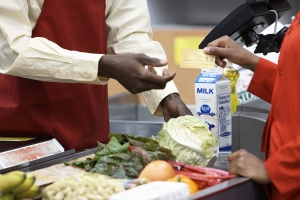 Memberships at grocery stores usually come with benefits that can save you money at the store. They are especially helpful if you do most of your shopping in one place. Benefits vary from store to store, but they usually include discounts on certain items, coupons, and cash back offers. Some store memberships also offer discounts at gas stations, restaurants, and local attractions. Many grocery store memberships are free, but memberships to “wholesale clubs” such as BJ’s or Costco usually have a fee. Wholesale clubs offer items at a discount because they are sold in bulk. Remember, for memberships that have a fee, you’re only saving money if you shop there often and if you can use the large quantities that they sell. It’s not a bargain if the food spoils before you can eat it all. Next time you go to the grocery store, ask the cashier about memberships and learn how you can save!
Memberships at grocery stores usually come with benefits that can save you money at the store. They are especially helpful if you do most of your shopping in one place. Benefits vary from store to store, but they usually include discounts on certain items, coupons, and cash back offers. Some store memberships also offer discounts at gas stations, restaurants, and local attractions. Many grocery store memberships are free, but memberships to “wholesale clubs” such as BJ’s or Costco usually have a fee. Wholesale clubs offer items at a discount because they are sold in bulk. Remember, for memberships that have a fee, you’re only saving money if you shop there often and if you can use the large quantities that they sell. It’s not a bargain if the food spoils before you can eat it all. Next time you go to the grocery store, ask the cashier about memberships and learn how you can save!
Making sandwiches
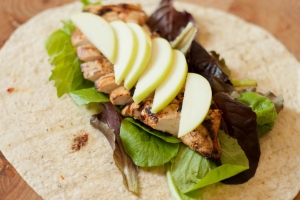 Sandwiches make a quick, easy, and convenient meal. Here are some tips for inexpensive and healthy sandwich choices. Instead of deli meats, which are high in sodium and can be expensive, use fresh meat that you’ve cooked yourself. For example, try using leftover roast pork, sliced meatloaf, or grilled chicken on a sandwich. Salads like egg, tuna, or chicken are low-cost and easy to make, especially for a group. You can vary these salads by using different seasonings such as curry powder or chili powder. Adding fruits and vegetables is another way to vary your sandwiches, and make them even healthier. Try putting chopped red and green bell pepper in egg salad or apple slices on a roast pork sandwich. Follow these tips and enjoy healthier sandwiches today!
Sandwiches make a quick, easy, and convenient meal. Here are some tips for inexpensive and healthy sandwich choices. Instead of deli meats, which are high in sodium and can be expensive, use fresh meat that you’ve cooked yourself. For example, try using leftover roast pork, sliced meatloaf, or grilled chicken on a sandwich. Salads like egg, tuna, or chicken are low-cost and easy to make, especially for a group. You can vary these salads by using different seasonings such as curry powder or chili powder. Adding fruits and vegetables is another way to vary your sandwiches, and make them even healthier. Try putting chopped red and green bell pepper in egg salad or apple slices on a roast pork sandwich. Follow these tips and enjoy healthier sandwiches today!
Enjoying zucchini in season
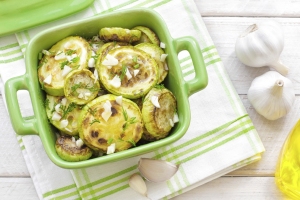 Zucchini is just like yellow summer squash but it’s green. It has a mild flavor, gets tender when you cook it, and makes a great side dish. Look for firm zucchini, and choose smaller ones because they have better flavor and smaller seeds inside. To prepare zucchini, cut off the ends and chop or slice it. Zucchini is great sautéed, steamed, roasted, or grilled. To grill zucchini, cut it into thick, flat, even slices and brush it with a little oil to keep it from sticking. Try cooking it with fresh herbs like basil or rosemary. Enjoy zucchini on its own or with other summer vegetables like tomato, onion, and eggplant!
Zucchini is just like yellow summer squash but it’s green. It has a mild flavor, gets tender when you cook it, and makes a great side dish. Look for firm zucchini, and choose smaller ones because they have better flavor and smaller seeds inside. To prepare zucchini, cut off the ends and chop or slice it. Zucchini is great sautéed, steamed, roasted, or grilled. To grill zucchini, cut it into thick, flat, even slices and brush it with a little oil to keep it from sticking. Try cooking it with fresh herbs like basil or rosemary. Enjoy zucchini on its own or with other summer vegetables like tomato, onion, and eggplant!